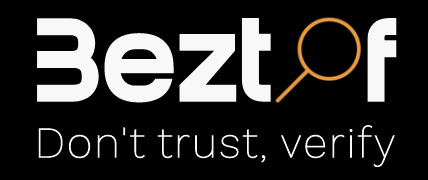Understanding Ferret Cost Basics
Welcome to the fascinating world of ferrets! These playful, intelligent creatures make wonderful pets, but it’s crucial to understand the costs involved. Let’s dive into the basics.
Where to Buy a Ferret
You have several options when it comes to purchasing a ferret. Pet shops typically offer baby ferrets for around $150. These little ones are usually already neutered, saving you that expense. However, if you’re looking for a specific breed, consider a breeder. Ferrets from breeders can cost up to $500, but they are often well-socialized and well-behaved.
Another option is adoption. Shelters offer ferrets for about $100. These ferrets are already neutered and vaccinated, which can save you money in the long run. Plus, adopting a ferret gives a loving home to a creature in need.
Special Breeds
Certain breeds, like albino and angora ferrets, may come with a higher price tag. But remember, the initial cost of the ferret is just the beginning. There are many other expenses to consider.
Neutering and Vaccinations
Neutering and vaccinations are essential for your ferret’s health. If your ferret isn’t already neutered, you’ll need to add $125-$180 to your budget. Vaccinations are another crucial expense. Regular check-ups are also important for early detection of health issues.
Initial Investment
The initial investment for a ferret can be quite significant. A good cage can cost at least $250.

Other accessories like litter boxes, hammocks, and toys can add another $500. But these are necessary for your ferret’s comfort and happiness.
Remember, owning a ferret is a long-term commitment. It’s not just about the initial cost, but also the ongoing expenses. Premium quality ferret food can cost around $30-100 per month. Ferret-safe litter is recommended, costing around $20-30 per month.
Final Thoughts
Owning a ferret can be a rewarding experience, but it’s important to be prepared for the costs. Make sure you budget for both the initial investment and the ongoing expenses. And remember, your ferret’s health and happiness are priceless.
For more information on ferret care, check out Unusual Pet Vets. They offer a comprehensive guide to ferret care, including a HopStart Package for Ferrets. This all-inclusive package provides premium veterinary care for your ferret, making it a great option for new ferret owners.
Remember, your ferret is more than just a pet. It’s a member of your family. So, make informed decisions about its care. It’s not just about cost. It’s about your ferret’s health and happiness.
Budgeting for Ferret Ownership
When planning for ferret ownership, it’s essential to consider all the costs involved. From the initial investment to the ongoing expenses, owning a ferret can add up. But don’t worry, we’re here to help you navigate the financial side of ferret ownership.
Initial Investment
The first thing you’ll need is a cage. A basic ferret cage can cost as little as $80. However, a fully set up cage, with all the necessary features, can cost closer to $200 or even higher. Remember, ferrets require a larger living space than other small animals. The cage should be large enough to hold food and water containers, bedding, a litter pan, and toys. Safety is also important. Ferrets can squeeze through small spaces, so ensure the cage has secure door latches. Check out Petco for a variety of ferret cage options.
Accessories and Supplies
Next, you’ll need to budget for accessories and supplies. These include litter boxes, hammocks, and toys. These items can add another $500 to your initial costs. But remember, these are necessary for your ferret’s comfort and happiness. Hammocks, for example, can be set up on the second or third level of the cage for sleeping. Ferrets sleep 12-18 hours a day and need a dark, enclosed sleep area.
Monthly Expenses
Now, let’s talk about ongoing costs. Premium quality ferret food can cost around $30-100 per month. Ferret-safe litter is recommended, costing around $20-30 per month.

It’s also important to factor in the cost of regular vet check-ups for early detection of health issues.
Cost Comparison
To put things into perspective, let’s compare ferret costs to other pets. Dogs, for example, are the most expensive pets, costing between $700 and $2,000 a year. Cats cost $500 to $1,000 a year to keep. Guinea pigs cost between $500 and $800 a year. Ferrets cost approximately $300 to $800 per year to keep. So, while ferrets are not the cheapest pets, they are certainly not the most expensive.
Smart Budgeting
Budgeting for ferret ownership is all about being prepared. Make sure you account for both the initial investment and the ongoing expenses. And remember, your ferret’s health and happiness are priceless. So, make informed decisions about its care. It’s not just about cost. It’s about providing the best possible life for your new furry friend.
For more information on ferret care, check out Unusual Pet Vets. They offer a comprehensive guide to ferret care, including a HopStart Package for Ferrets. This all-inclusive package provides premium veterinary care for your ferret, making it a great option for new ferret owners.
Remember, owning a ferret is a long-term commitment. It’s not just about the initial cost, but also the ongoing expenses. So, plan wisely and enjoy the rewarding experience of ferret ownership.
Maximizing Value in Ferret Ownership
When it comes to ferret ownership, getting the most value for your money is crucial. This doesn’t mean cutting corners or compromising on quality. It’s about making smart, informed decisions.
Shop Smart
Start by shopping smart. Compare prices from different sources. Petco, for example, sells ferrets for $349. However, private breeders may charge up to $500 for specialty breeds. It’s worth noting that Ferret.com offers discount codes and promo codes for purchasing supplies. By applying the coupon code at checkout, savings will be reflected immediately on the cart total.
Consider Adoption
Next, consider adoption. Shelters often have ferrets for a fraction of the cost. Plus, you’ll be giving an older ferret a second chance. It’s a win-win situation.
Invest in Quality
Investing in quality is key. High-quality food, for instance, can prevent health issues down the line. This means fewer vet bills and a happier, healthier ferret.
Train Your Ferret
Training your ferret can also save you money. Adult ferrets are usually already litter trained, while baby ferrets require more time and training. Spending dedicated time with a ferret can lead to a well-behaved and sweet pet.
Plan for Companionship
Remember, ferrets are social creatures. They may require a companion if you can’t devote enough time to them. This can add to the cost, so plan accordingly.
Be Aware of Legal Restrictions
Lastly, be aware of legal restrictions. There may be legal restrictions on keeping ferrets as pets in certain states and territories. Make sure to check your local laws before bringing a ferret home.
In essence, maximizing value in ferret ownership is about making smart choices. It’s about balancing cost with quality, and planning for the long-term. With careful planning and a bit of savvy shopping, you can provide a loving home for your ferret without breaking the bank.
Handling Unexpected Ferret Costs
Ferrets, like any pet, can bring unexpected costs. Vet visits, for example, can range from a few hundred to a few thousand dollars. This can be a shock if you’re not prepared. But don’t worry, we’ve got some strategies to help you handle these costs.
Expect the Unexpected
Firstly, always expect the unexpected. Ferrets are curious creatures. They love to explore and can sometimes get into trouble. This can lead to unexpected vet visits. For example, during shedding season, a ferret might ingest hair, leading to a blockage. The cost of laxatives and vet visits can add up to $3000.
Regular Check-ups
Regular check-ups are a must. They can cost up to $300 annually, but they’re worth it. These visits can catch diseases early, saving you money in the long run. For instance, early detection of mammary cancer can save you up to $1950 in treatment costs.
Emergency Fund
An emergency fund is a lifesaver. It’s a good idea to set aside money specifically for ferret care. This can cover unexpected vet bills or other unforeseen expenses. Remember, it’s better to have it and not need it than to need it and not have it.
Insurance and Grants
Consider pet insurance.

It can help cover the cost of vet visits and treatments. Some insurance plans even cover routine check-ups and vaccinations. Also, there are grants available for extraordinary medical care. These can help in unique situations or during disasters. Check out American Ferret Association for more information.
Shop Smart
Lastly, shop smart. Look for discounts and deals on ferret supplies. Websites like Ferret.com often offer promo codes. This can help you save on food, litter, and other supplies.
In essence, handling unexpected ferret costs is about being prepared. Regular check-ups, an emergency fund, and smart shopping can go a long way. So, don’t let the potential costs scare you. With a bit of planning, you can provide a loving home for your ferret without breaking the bank.

